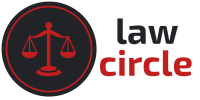Google Privacy Lawsuit Class Action Approved
by Ayden

If you are worried about your privacy on Google’s website, you are not alone. Many people are unhappy with the way Mountain View-based Google collects data about you. In a recent lawsuit, the Mountain View-based search giant was sued for violating its users’ privacy. The Mountain View-based tech giant is under fire for misrepresenting its policies and practices, and the class-action lawsuit is a way for these individuals to get their say.
Incognito mode
A class-action lawsuit against Google and its tracking policies has been approved by US District Court Judge Lucy Koh. The plaintiffs claim that the search giant violated federal wiretap laws by failing to stop tracking users, even while they were using “incognito” mode. The suit sought $5 billion in damages for each violation or about $5,000 per user. The judge dismissed Google’s argument that users knowingly consented to track when they created their Google accounts.
Despite this legal action, Google has declined to comment on the lawsuit, saying it would vigorously defend itself. But the incognito mode is not completely safe. Websites and advertisers use a technology called geolocation to track users. By embedding software tools on websites, these companies can create digital fingerprints that contain information such as a user’s browser, operating system, language, location, and device specifications. This information is then used by advertisers and other companies to personalize ads and other content.
Location history feature
A California privacy lawsuit claims that Google is tracking its users’ location by using the “Location History” feature on their phones. According to the lawsuit, this tracking violates California’s Invasion of Privacy Act. Also, the company uses a practice known as “dark patterns” to collect location data, which violates the European Union’s Digital Services Act. The suit seeks damages and a court order forcing Google to destroy the data.
While the company has been defending its position, its new policy could still be problematic. The Associated Press reported that Google is tracking users’ locations even when the location history feature is turned off. Google had claimed that turning off the feature would prevent them from tracking users’ locations, but it appears that a separate setting called “Web & App Activity” still logs users’ location data. If you want to opt out of tracking, you need to log out of both services and use a different one.
Misrepresentations made by Google
In a recent privacy lawsuit, attorneys general from three states have sued Google on behalf of consumers. Their lawsuit alleges that Google deceived and manipulated consumers by making it difficult to opt out of location tracking. The OAG has joined the lawsuit and is seeking both an injunction and civil penalties for Google’s actions. While the lawsuit does not provide a definitive answer as to the outcome of the case, it does provide some guidance.
First, the lawsuit alleges that Google violated the California Consumer Privacy Act (COPPA) by failing to disclose the information that is collected about the consumer. This misrepresentation may have been a violation of California law, but it does not affect Google’s rights under the federal Magnuson-Moss Warranty Act. Google denies the allegations in the lawsuit and the court has yet to rule on the merits of the suit.
Damages sought by the class
In the case of the Google privacy lawsuit, the claimant requested damages for each member of the class, even though the company had failed to show it had breached the DPA. The claimant did not establish that the data was used for wrongful purposes or that he had suffered material damage or distress. In the case of representative action, the court said there was scope for damages to be determined based on the facts.
Based on the DPA 1998, the Court of Appeal ruled that Mr. Lloyd and other members of the class should be able to recover damages under section 13 of the Act. The DPA 1998 prohibits companies from liability for losses unless they can show they caused the consumer distress or financial loss. Because members of the class have the same interest, the court should be able to permit a representative action.
Chance of success
A class-action lawsuit seeks damages for each individual. If there is no wrongful use of personal information or no material damage, the plaintiffs may have little chance of success. On the other hand, if a plaintiff is pursuing the claim individually, they will have a much better chance of success. It is worth noting that the plaintiffs’ attorneys typically receive a portion of the settlement fund. The chances of a Google privacy lawsuit being successful depend on the case facts.
If you are worried about your privacy on Google’s website, you are not alone. Many people are unhappy with the way Mountain View-based Google collects data about you. In a recent lawsuit, the Mountain View-based search giant was sued for violating its users’ privacy. The Mountain View-based tech giant is under fire for misrepresenting its…
Recent Posts
- Nexium Cancer Lawsuit
- New Balance Lawsuit Balance Athletica
- Neopets Class Action Lawsuit
- Fastenal’s Fastened to Lawsuits: A Rundown of Legal Tangles
- The Curious Case of Fantasia: Lawsuits and Melodies
- Falls Motor City: Screeching to a Halt with False Advertising Allegations
- Soaring into Controversy: The Murky Skies of Falcon Insurance Lawsuits
- Milk Money Matters: The Fairlife Lawsuit Explained
- Navigating the Maze: What You Need to Know About FCRA Lawsuit Settlements
- Fair Collections & Outsourcing Lawsuit: Navigating the Murky Waters of Debt Collection
